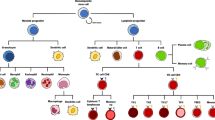Abstract
To regulate several immunological changes in the prevention of diseases, immunomodulators are helpful compounds which are derived naturally from plants. Since ancient times, people are using these natural compounds for treatment of several diseases. Immunomodulators are capable to fight against invaders by producing antibodies and cytotoxicity and maintain homeostasis of the immune system. Recent research focusing on investigations of new developments in immunomodulators has increased. Hence, this book chapter starts with introduction to immunomodulators and naturally existing plant-derived compounds and types. It also discusses about quercetin and its derived compounds with physicochemical properties and bioavailability. Furthermore, it highlights the mechanism of action of quercetin on the immune system with future challenges.
Access this chapter
Tax calculation will be finalised at checkout
Purchases are for personal use only
Similar content being viewed by others
References
Abbas AK, Lichtman AH, Pillai S (2012) Basic immunology: functions and disorders of the immune system. Elsevier Health Sciences, New York
Ader P, Wessmann A, Wolffram S (2000) Bioavailability and metabolism of the flavonol quercetin in the pig. Free Radic Biol Med 28(7):1056–1067
Ahmad NS et al (2008) Pharmacological basis for use of Pistacia integerrima leaves in hyperuricemia and gout. J Ethnopharmacol 117(3):478–482
Baxter D (2007) Active and passive immunity, vaccine types, excipients and licensing. Occup Med 57(8):552–556
Begum AN, Terao J (2002) Protective effect of quercetin against cigarette tar extract-induced impairment of erythrocyte deformability. J Nutr Biochem 13(5):265–272
Boots AW, Haenen GRMM, Bast A (2008) Health effects of quercetin: from antioxidant to nutraceutical. Eur J Pharmacol 585:325–337
Chabane MN, Ahmad AA, Peluso J, Muller CD, Ubeaud-Séquier G (2009) Quercetin and naringenin transport across human intestinal Caco-2 cells. J Pharm Pharmacol 61(11):1473–1483
Chirumbolo S (2010) The role of quercetin, flavonols and flavones in modulating inflammatory cell function. Inflamm Allergy Drug Targets 9(4):263–285
Guo Y et al (2013) Dietary fat increases quercetin bioavailability in overweight adults. Mol Nutr Food Res 00:1–10
Harwood M et al (2007) A critical review of the data related to the safety of quercetin and lack of evidence of in vivo toxicity, including lack of genotoxic/carcinogenic properties. Food Chem Toxicol 45:2179–2205
Istudor V (1998) Pharmacognosy, phytochemistry, phytotherapy. In: Glycosides and lipids, 1
Jantan I, Ahmad W, Bukhari SNA (2015) Plant-derived immunomodulators: an insight on their preclinical evaluation and clinical trials. Front Plant Sci 6(655):1–18
Kandere-Grzybowska K et al (2006) Regulation of IL-1-induced selective IL-6 release from human mast cells and inhibition by quercetin. Br J Pharmacol 148:208–215
Kharkar PB et al (2017) Nanosystems for oral delivery of immunomodulators, nanostructures for oral medicine. Elsevier
Kim DH, Kim SY, Park SY, Han MJ (1999) Metabolism of quercitrin by human intestinal bacteria and its relation to some biological activities. Biol Pharm Bull 22(7):749–751
Konrad M, Nieman D (2014) Evaluation of quercetin as a countermeasure to exercise-induced physiological stress. In: Antioxidants in sport nutrition
Kumar D et al (2012) A review of immunomodulators in the Indian traditional health care system. J Microbiol Immunol Infect 45:165–184
Lakhanpal P, Rai DK (2007) Quercetin: a versatile flavonoid. Internet J Med Update 2(2):22–37
Li Y, Yao J, Han C, Yang J, Chaudhry MT, Wang S, Liu H, Yin Y (2016) Quercetin, inflammation and immunity. Nutrients 8(3):167. https://doi.org/10.3390/nu8030167
Lim H, Hyun PK (2007) Inhibition of mammalian collagenase, matrix metalloproteinase-1, by naturally-occurring flavonoids. Planta Med 73:1267–1274
Mlcek J, Jurikova T, Skrovankova S, Sochor J (2016) Quercetin and its anti-allergic immune response. Molecules (Basel, Switzerland) 21(5):623. https://doi.org/10.3390/molecules21050623
Muthian G, Bright JJ (2004) Quercetin, a flavonoid phytoestrogen, ameliorates experimental allergic encephalomyelitis by blocking IL-12 signaling through JAK-STAT pathway in T lymphocyte. J Clin Immunol 24(5):542–552
Nair MPN et al (2002) The flavonoid, quercetin, differentially regulates Th-1 (IFNγ) and Th-2 (IL4) cytokine gene expression by normal peripheral blood mononuclear cells. Biochim Biophys Acta 1593:29–36
Penissi AB, Rudolph MI, Piezzi RS (2003) Role of mast cells in gastrointestinal mucosal defense. Biocell 27(2):163–172
Shukla S, Bajpai VK, Kim M (2012) Plants as potential sources of natural immunomodulators. Rev Environ Sci Biotechnol 13:17–33
Singh N, Tailang M, Mehta SC (2016) A review on herbal plants as immunomodulators. Int J Pharm Sci Res 7(9):3602–3610
Smit E, Oberholzer HM, Pretorius E (2009) A review of immunomodulators with reference to Canova®. Homeopathy 98:169–176
Valentová K et al (2016) (Anti)mutagenic and immunomodulatory properties of quercetin glycosides. J Sci Food Agric 96:1492–1499
Vásquez-Garzón V et al (2009) Inhibition of reactive oxygen species and pre-neoplastic lesions by quercetin through an antioxidant defense mechanism. Free Radic Res 43(2):128–137
Walle T, Walle UK, Halushka PV (2001) Carbon dioxide is the major metabolite of quercetin in humans. J Nutr 131(10):2648–2652
Wen CC, Chen HM, Yang NS (2012) Developing phytocompounds from medicinal plants as immunomodulators. In: Advances in botanical research, 1st edn. Elsevier
Competing Interest
The authors declare that there are no competing interests.
Author information
Authors and Affiliations
Corresponding author
Editor information
Editors and Affiliations
Rights and permissions
Copyright information
© 2022 The Author(s), under exclusive license to Springer Nature Singapore Pte Ltd.
About this chapter
Cite this chapter
Koraganji, D.V., Mounika, A., Sushanth, P., Kandra, P. (2022). Effect of Plant-Derived Immunomodulators on the Immune System. In: Kesharwani, R.K., Keservani, R.K., Sharma, A.K. (eds) Nutraceuticals and Functional Foods in Immunomodulators. Springer, Singapore. https://doi.org/10.1007/978-981-19-2507-8_4
Download citation
DOI: https://doi.org/10.1007/978-981-19-2507-8_4
Published:
Publisher Name: Springer, Singapore
Print ISBN: 978-981-19-2506-1
Online ISBN: 978-981-19-2507-8
eBook Packages: Biomedical and Life SciencesBiomedical and Life Sciences (R0)




